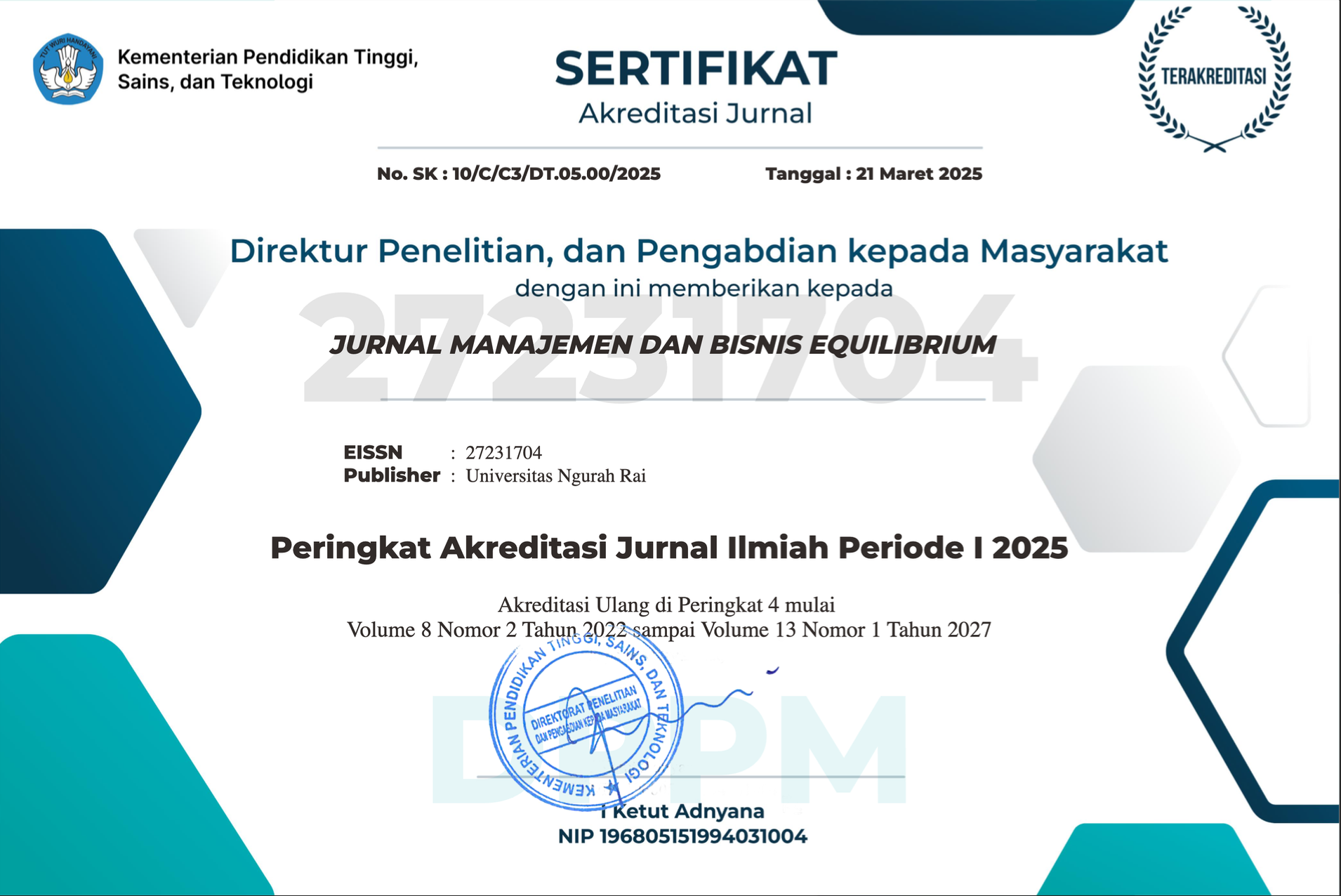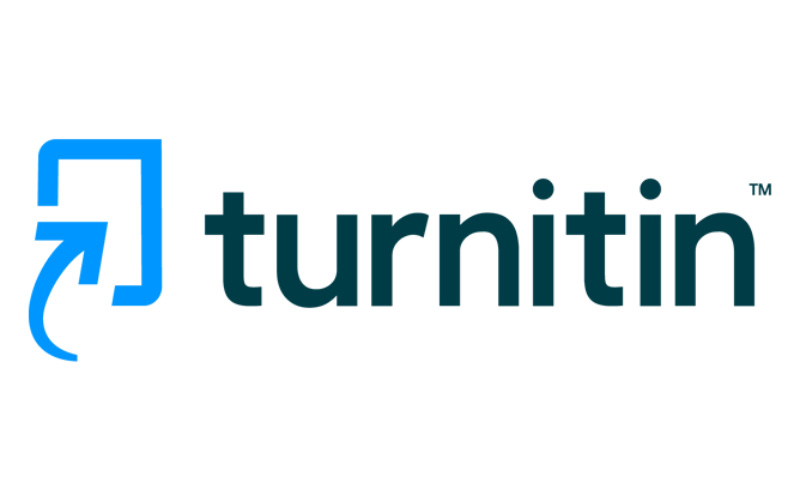Publication Ethic
To maintain the quality of the manuscripts and avoid publishing violations / plagiarism in the publishing process, the editorial board determines the ethics of scientific publication of the Journal of Management and Business Equilibrium (MBE). These publication ethics rules apply to writers / authors, editors, peer reviewers, and journal managers / editors. The publication ethics refer to COPE's Best Practice Guidelines for Journal Editors.
Authors Ethics
- Reporting Standards: Authors must present an accurate report of the original research conducted as well as an objective discussion of its significance. Researchers must present their results honestly and without improper fabrication, forgery or manipulation of data. A manuscript must contain sufficient detail and references to allow others to imitate the work. Statements that are deceptive or intentionally inaccurate are unethical and unacceptable behavior. Manuscripts must follow journal submission guidelines. Statements that are deceptive or intentionally inaccurate are unethical and unacceptable behavior. Manuscripts must follow journal submission guidelines.
- Orisinalitas dan Plagiarisme: Authors must ensure that they have written completely original work. Manuscripts may not be submitted simultaneously to more than one publication unless the editor agrees to co-publication. Relevant previous works and publications, whether by other researchers or those of the author, must be appropriately acknowledged and referenced. The main literature should be cited whenever possible. Original words taken directly from a publication by another researcher should appear in quotation marks with the appropriate citation.
- Multiple, Redundant, or Concurrent Publications: Authors generally may not submit the same manuscript to more than one journal at the same time. It is also hoped that the author does not publish manuscripts or manuscripts that are redundant describing the same research in more than one journal. Submitting the same manuscript to more than one journal at the same time is unethical and unacceptable publishing behavior. Publications arising from a research project should be clearly identified as such and the main publication referred to
- Acknowledgement of Sources: Authors should know all data sources used in the research and cite publications that have influence in determining the nature of the work reported. Proper recognition of the work of others must always be given.
- Authorship of the Paper: The authorship of research publications must accurately reflect individual contributions to their work and reporting. Writing should be limited to those who have made a significant contribution to the conception, design, implementation or interpretation of the reported study. Others who have made significant contributions must be listed as co-authors. In cases where the main contributors are listed as authors while those who made a less substantial, or purely technical, contribution to the research or publication are listed in the acknowledgment section. The author also ensures that all authors have viewed and approved the submitted version of the manuscript and inclusion of their names as co-authors.
- Disclosure and Conflicts of Interest: All authors must clearly disclose in their text any financial or other substantive conflicts of interest that could be construed to affect the results or their interpretation of the text. All sources of financial support for the project must be disclosed.
- Fundamental Errors in Published Works: If the author finds significant errors or inaccuracies in the submitted manuscript, the author must immediately notify the journal editor or publisher and work with the editor to retract or correct the paper.
- Hazards and Human or Animal Subjects: Authors must clearly identify in the text if the work involves chemicals, procedures or equipment that have unusual hazards inherent in their use.
Ethics Editor
- Publication Decisions: Based on the editorial board review report, the editor can accept, reject, or request modifications to the manuscript. The validation of the work in question and its importance to researchers and readers should always drive such decisions. Editors may be guided by the policies of the journal's editorial board and limited by the legal requirements that will apply regarding defamation, copyright infringement and plagiarism. The editor may confer with other editors or reviewers in making this decision. Editors must be responsible for everything they publish and must have procedures and policies to ensure the quality of the material they publish and maintain the integrity of published records.
- Review of Manuscripts: Editors must ensure that each manuscript is initially evaluated by the editor for authenticity. Editors must organize and use peer reviews fairly and wisely. Editors should describe their peer review process in information for authors and also indicate which parts of the journal are peer-reviewed. Editors should use appropriate peer reviewers for papers considered for publication by selecting people with sufficient expertise and avoiding those with conflicts of interest.
- Fair Play: The editor must ensure that every manuscript received by the journal is reviewed for its intellectual content regardless of gender, gender, race, religion, nationality, etc. From the author. An important part of the responsibility to make fair and impartial decisions is upholding the principles of independence and editorial integrity. The editor is in a strong position with making decisions about publication, which makes it imperative that this process is as fair and as possibly impossible.
- Confidentiality: Editors must ensure that information regarding manuscripts submitted by authors is kept confidential. Editors should critically assess any potential breaches of data protection and patient confidentiality. This includes requiring properly informed consent for actual research presented, approval for publication where applicable.
- Disclosure and Conflicts of Interest: Journal editors will not use unpublished material disclosed in submitted manuscripts for their own research without the written consent of the authors. Editors must not be involved in decisions about papers with conflicts of interest.
Ethics of Reviewers
- Confidentiality: Information regarding manuscripts submitted by authors must be kept confidential and treated as protected information. They may not be shown or discussed with others except as permitted by the editor.
- Acknowledgement of Sources: The reviewer must ensure that the authors acknowledge all sources of data used in the study. The reviewer must identify relevant published works that have not been cited by the author. Any statements for which previously reported observations, derivations or arguments must be accompanied by the relevant citation. Reviewers should immediately notify the journal if they discover irregularities, have concerns about aspects of work ethics, are aware of substantial similarities between the manuscripts and concurrent submissions to other journals or published articles, or suspect that violations may have occurred either during research or writing and submission of manuscripts; reviewers should, however, keep their concerns private and not investigate further privately unless the journal asks for further information or advice.
- Standards of Objectivity: Review of submitted manuscripts must be carried out objectively and reviewers must express their views clearly with supporting arguments. Reviewers should follow the journal's instructions regarding any specific feedback required from them and unless there is a good reason not to do so. Reviewers should be constructive in their reviews and provide feedback that will help writers improve their manuscript. The reviewer must describe any additional suggested investigations that are important to support the claims made in the manuscript under consideration and which will only strengthen or extend the work
- Disclosure and Conflict of Interest: Privileged information or ideas obtained through peer review should be kept confidential and not used for personal gain. Reviewers should not consider manuscripts that have a conflict of interest due to competitive, collaborative, or other relationships or connections with any of the authors, companies, or institutions the paper is associated with. In the case of a double-blind review, if they suspect the identity of the author, notify the journal if this knowledge creates a potential conflict of interest.
- Promptness: Reviewers must respond within a reasonable time frame. Reviewers only agree to review manuscripts if they are reasonably certain they can return the review within the proposed or mutually agreed timeframe, informing the journal immediately if they require an extension. In the event that a reviewer feels that it is impossible to complete the review of the manuscript within the specified time, this information must be communicated to the editor so that the manuscript can be sent to other reviewers.
Journal Management Ethics
- Decission making: The journal manager / editorial board must describe the mission and objectives of the organization, especially those related to policy making and journal publishing decisions without any particular interest.
- Independency: Journal managers must give reviewers and editors freedom to create a comfortable working atmosphere and respect the privacy of the author.
- Guarantess and Promotions: Journal managers must guarantee and protect intellectual property rights (copyright), and be transparent in managing funds received by third parties. In addition, journal managers must publish and promote published results to the public by guaranteeing the usefulness of using the manuscript.
- Disclosure of conflicts of interest: Journal managers must understand the ethics of scientific publication above to avoid conflicts of interest with other parties, so that the manuscript publishing process runs smoothly and safely.



















